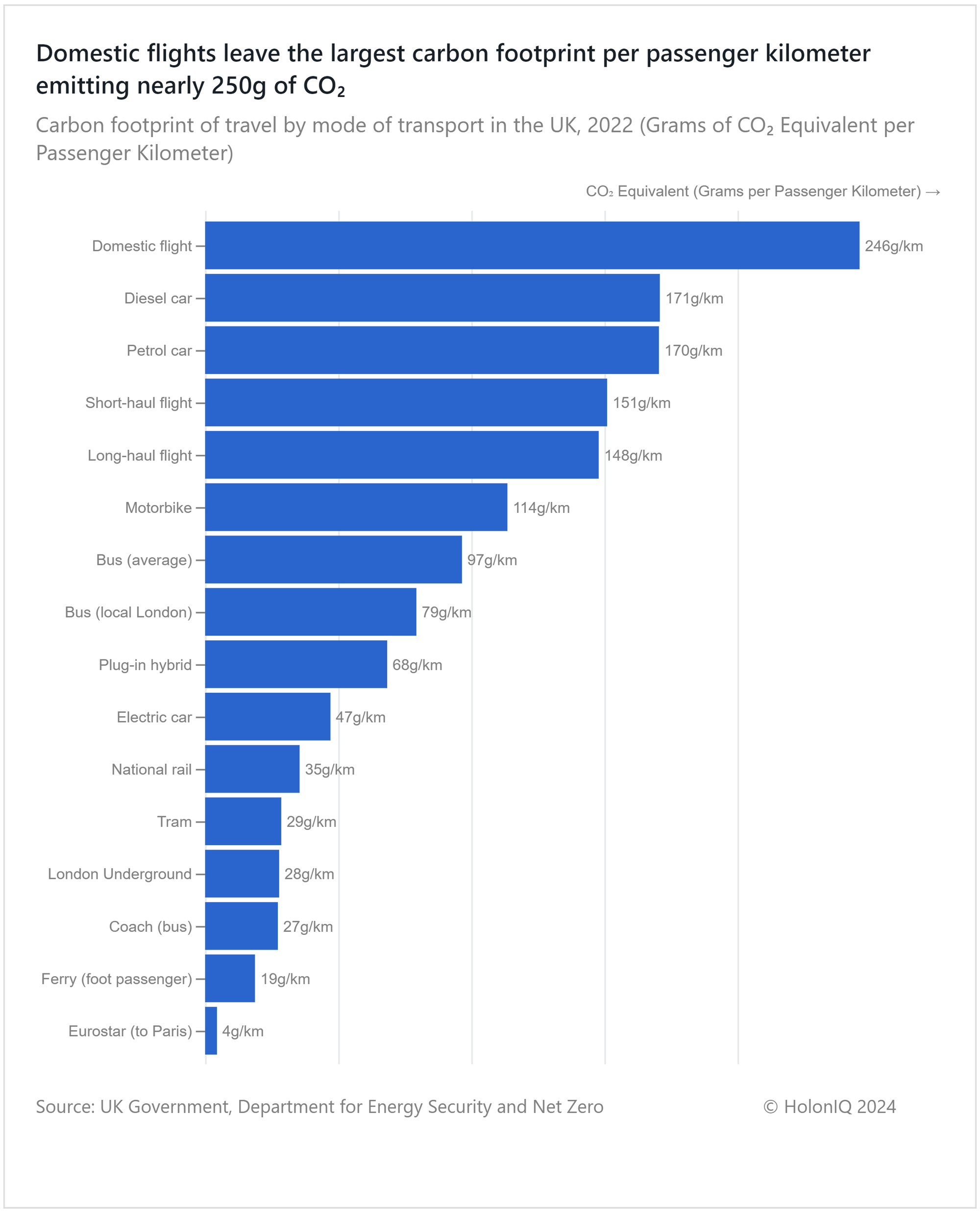🚋 Public Transport Greener Than EVs. Private School Costs. Birth Control.
Chart of the Day #67 examines Private and Public Schooling Costs, Carbon Footprints from Transportation, and Birth Control Methods.
Slaw 👋
Last month, the US launched the first-ever over-the-counter (OTC) birth control pill, which boasts a 91% effectiveness rate. Although the drug has been available under prescription for decades, it underwent nine years of testing before becoming available OTC. SpaceX initiated its first dedicated rideshare mission on April 7, delivering 11 commercial and military satellites into mid-inclination orbits.
Today's Topics
🏫 Private vs. Public Schools. Private school cost 3x public schools in Japan
🚋 Carbon Footprints. Public transport is more climate-friendly than EVs
🤰 Birth Control. Male condoms and the pill are the most popular contraceptives among college students
For unlimited access to over one million charts, request a demo.
🏫 Private School Costs 3x Public Schools in Japan
The total average expenses for a child who receives private education for 15 years of schooling in Japan, including tuition fees and extra help, have reached a record high of ¥18.4M (~$120k). This makes attending private school three times as costly as attending public school exclusively. Public and private education costs in Japan vary considerably across different levels of education. The largest disparity is at the elementary school level, where private schools cost nearly five times as much as public schools, at ¥1.67M (~$10.5K) per annum. The disparity is less at higher levels of education, with private junior high schools costing 2.6 times as much as their public counterparts. In high school, private schools cost twice as much.
Parents may opt for private schooling due to a perceived emphasis on early development and specialized curricula, despite the additional financial burden. However, public high schools in Japan are renowned for their established reputation and high competitiveness, Admission to these schools is based heavily on entrance examination performance since high-ranked public schools often enhance students' prospects post-graduation.
🚋 Public Transport Is More Climate-Friendly Than EVs

In the UK, domestic flights are the largest emitters of CO₂ per passenger kilometer, releasing 246g/km, while diesel and petrol cars emit around 44% less, at approximately 170g/km. Interestingly, long-haul and short-haul flights emit less CO₂ per passenger kilometer than standard road vehicles. This is attributed to the volume effect of their being able to carry more passengers over longer distances.
Transportation accounts for over a fifth of the world’s greenhouse gas emissions. Public transport initiatives, particularly with trains, ferries, and trams, which accommodate a high volume of passengers, play a significant role in emissions reduction. These modes emit less CO₂ than electric vehicles, registering below 40g/km.
🤰 Male Condoms and the Pill Most Popular Contraceptives Among College Students

The majority (50%) of college students report using male condoms for birth control, followed by 41% who use birth control pills. Condoms and birth control pills are popular choices due to their ease of use, wide accessibility, and cost-effectiveness. The widespread implementation of school and community-based sex- education programs in the late 1980s and early 1990s significantly improved adolescent access to sexual education, leading to higher use of contraceptive methods.
However, 20% of students still report not using proper contraception and relying on the withdrawal method. College students are considered to be at high risk of unintended pregnancy, with 3 of 4 pregnancies in 15- to 19-year-olds being unintended. Enhancing reproductive health education initiatives and ensuring better access to contraception can help reduce the incidence of these pregnancies.
Like getting this newsletter? For unlimited access to over one million charts, request a demo.
Thank you for reading. Have a great week ahead!
Have some feedback or want to sponsor this newsletter? Let us know at hello@holoniq.com
